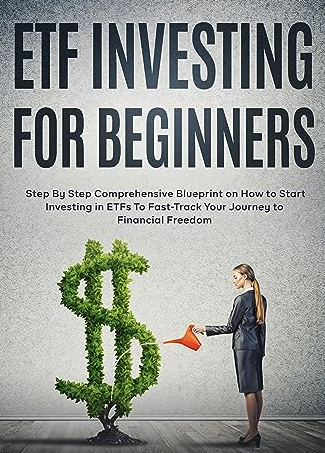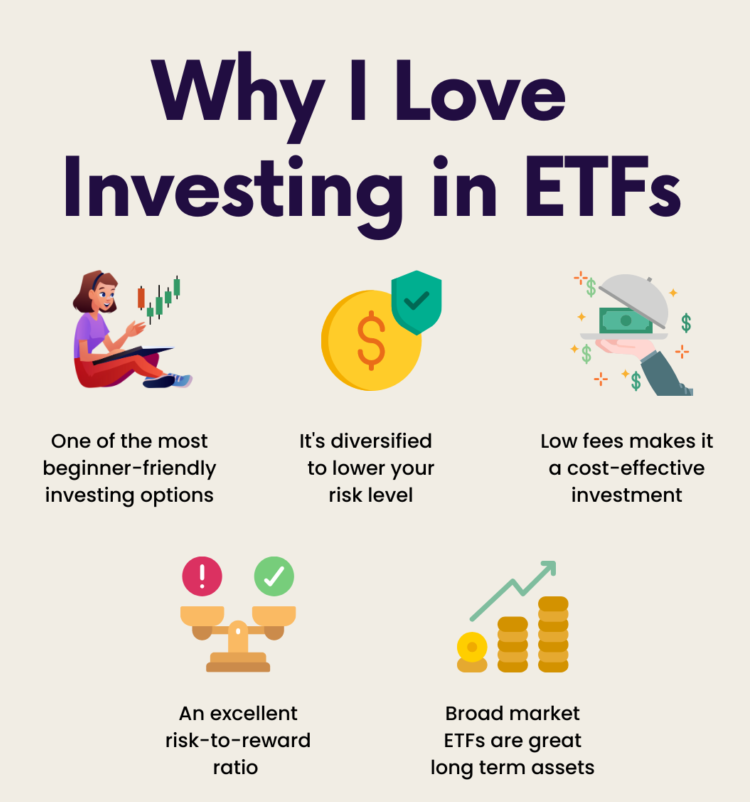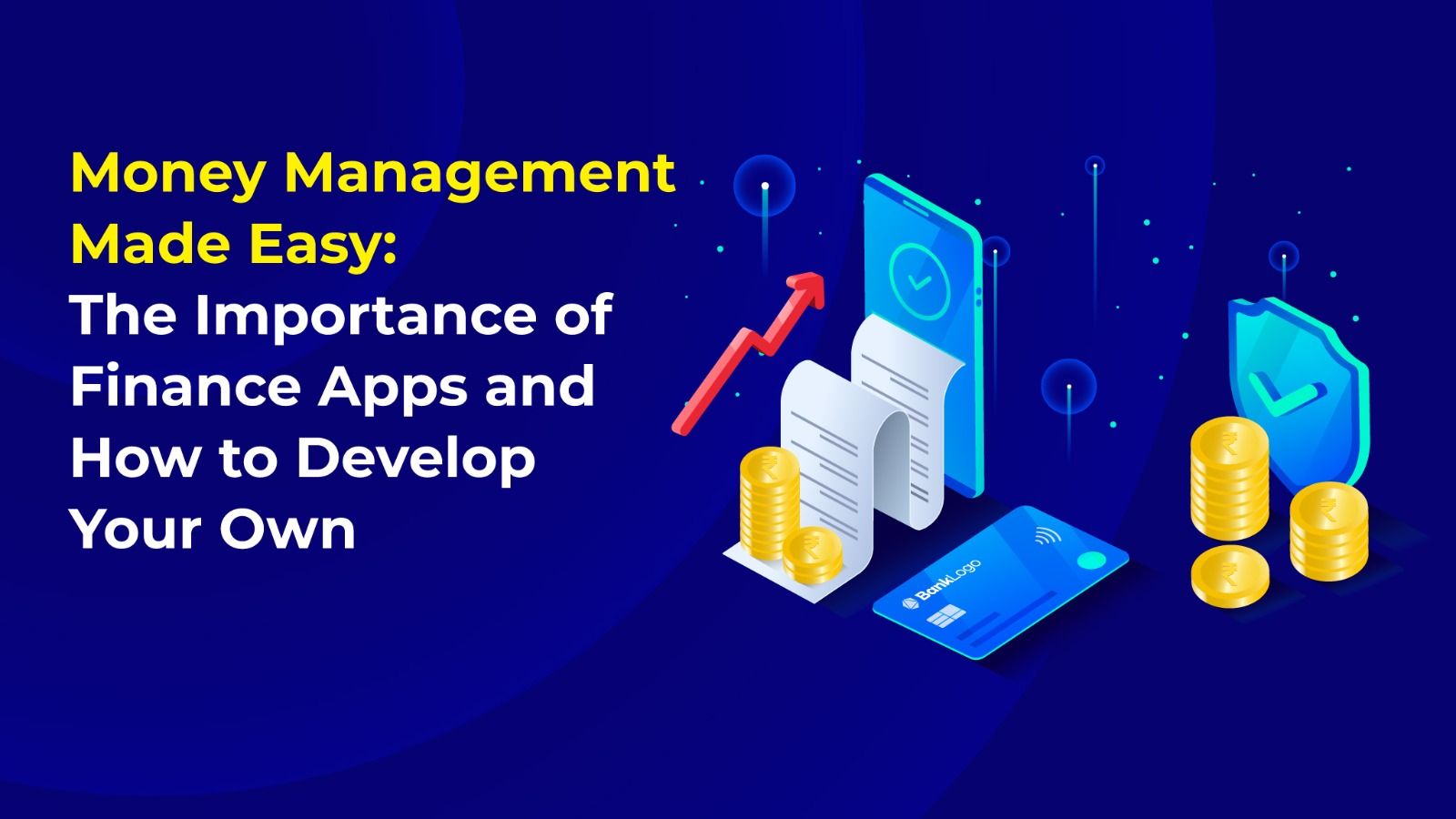Beginner's Toolkit: How to Start Investing in ETFs with Confidence

It can be a difficult task, in particular for those who are new to investing. With so many options available, it's important to choose investment vehicles wisely and understand their potential risks and returns. One popular option for novice investors is Exchange-Traded Funds (ETFs). In the following essay, we will explore what ETFs are, why they can be a great starting point for investing, and how beginners can approach investing in ETFs with confidence.
Understanding ETFs
Exchange Traded Funds ETFs are an investment fund type that buys and sells shares on exchanges similar to individual stocks. It offers investors exposure to a diversified portfolio of assets such as stocks, bonds, commodities, or real estate. The value of the ETF shares fluctuates throughout the trading day as they're bought and sold on the exchange.
Unlike mutual funds which have net asset values calculated at the end of each trading day based on their underlying holdings' worth, ETF prices change continuously during market hours. This intraday pricing feature makes them more flexible than traditional mutual funds.
Why Invest in ETFs?

There are several compelling reasons why beginner investors should consider adding ETFs to their investment toolkit:
1. Diversification: By investing in one single ETF share representing multiple underlying assets within its portfolio, investors gain exposure to various sectors or markets without having to purchase individual securities separately.
2. Affordability: Compared to purchasing individual stocks or other types of investments outrightly, buying shares of most well-established ETFs tends to be relatively affordable.
3. Liquidity: Since they trade like stocks on major exchanges throughout market hours, buying/selling shares typically incurs lower transaction costs compared with non-tradable investments like real estate or certain mutual funds.
4. Transparency: Most reputable issuers provide daily disclosure regarding their holdings allowing investors insight into which companies make up the ETF's portfolio. This transparency helps investors make informed decisions.
5. Ease of Use: Investing in ETFs is straightforward and accessible to beginners, requiring only a brokerage account and basic knowledge of how to buy/sell securities on the stock exchange.
Building Confidence in ETF Investing
For novice investors looking to start investing in ETFs with confidence, here are some essential steps:
1. Educate Yourself
Before diving into any investment, it's crucial to educate yourself about the basics of investing, including understanding different types of assets and their characteristics. Familiarize yourself with the key concepts related to ETFs such as expense ratios, tracking errors, and index methodologies.
Numerous online resources offer free educational materials like articles, tutorials or even online courses specifically tailored for beginner investors seeking guidance on investing fundamentals.
2. Define Your Investment Goals
Clarifying your investment goals is essential before choosing which specific ETF(s) align with your objectives. Are you aiming for long-term growth or regular income? Do you have a specific sector in mind? By identifying your goals, risk tolerance level, and time horizon upfront, it becomes easier to select suitable funds from the vast array available.
3. Research Different ETF Options
With thousands of ETFs available today covering various asset classes and sectors globally, researching potential options can be overwhelming at first glance. Take advantage of financial websites or brokerage platforms offering screening tools allowing users to filter funds based on criteria such as performance history, expense ratios, or holdings composition.
While past performance doesn't guarantee future results, studying historical returns can provide insights into how certain funds have performed under different market conditions.
4. Evaluate Fund Characteristics
When considering different ETF options for investment purposes there are several factors worth assessing:
· Expense Ratios: These fees cover management expenses associated with running the fund; lower expenses generally translate into higher net returns over time.
· Tracking Error: Measures how closely the ETF tracks its underlying index; lower tracking error suggests better replication.
· Liquidity: Consider average trading volumes and bid/ask spreads as higher liquidity can minimize transaction costs.
· Portfolio Composition: Analyze the holdings within the fund to ensure they align with your investment goals and risk tolerance.
5. Start Small
As a beginner, it's advisable to start investing in ETFs with a smaller amount of capital. This allows for gaining hands-on experience without risking substantial amounts of money. Over time, as confidence grows, additional investments can be made.
6. Monitor and Rebalance
Once invested in ETFs, it's important to periodically monitor their performance and review whether they still align with your investment goals. Market conditions change over time, affecting different sectors or asset classes unequally.
Regularly reassessing your portfolio ensures appropriate diversification is maintained while avoiding excessive exposure to underperforming areas of the market.
Conclusion
Investing in ETFs can be a great starting point for beginners looking to enter the world of investing confidently. Their diversification benefits, affordability, transparency, and ease of use make them attractive options for those just beginning their investment journey.
By educating themselves about investing basics, defining clear objectives, researching different options thoroughly, and evaluating key fund characteristics carefully before making small initial investments into suitable funds – investors can build confidence in navigating through the complexities of ETF investing successfully.
Remember: Investing always carries some level of risk; therefore seeking professional advice when necessary is encouraged for tailored solutions based on individual circumstances.
Related blogs....




